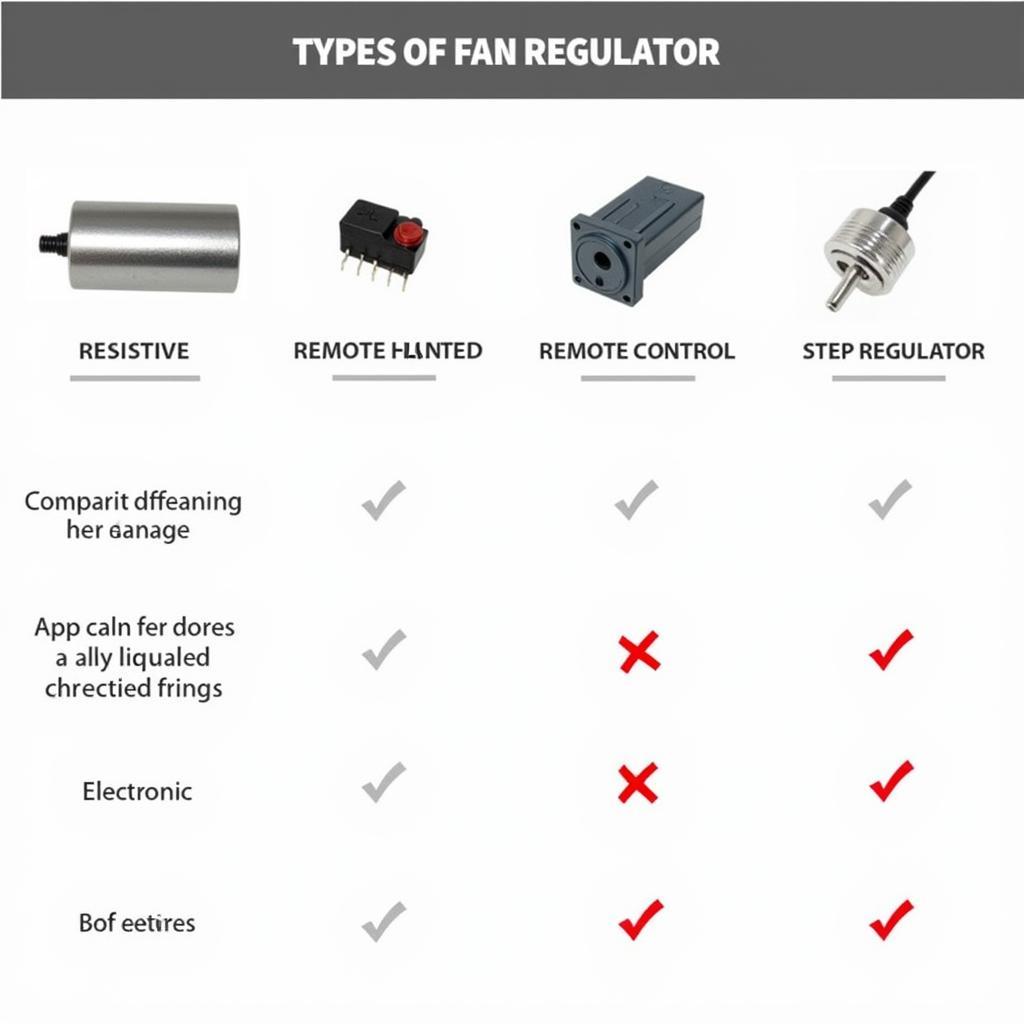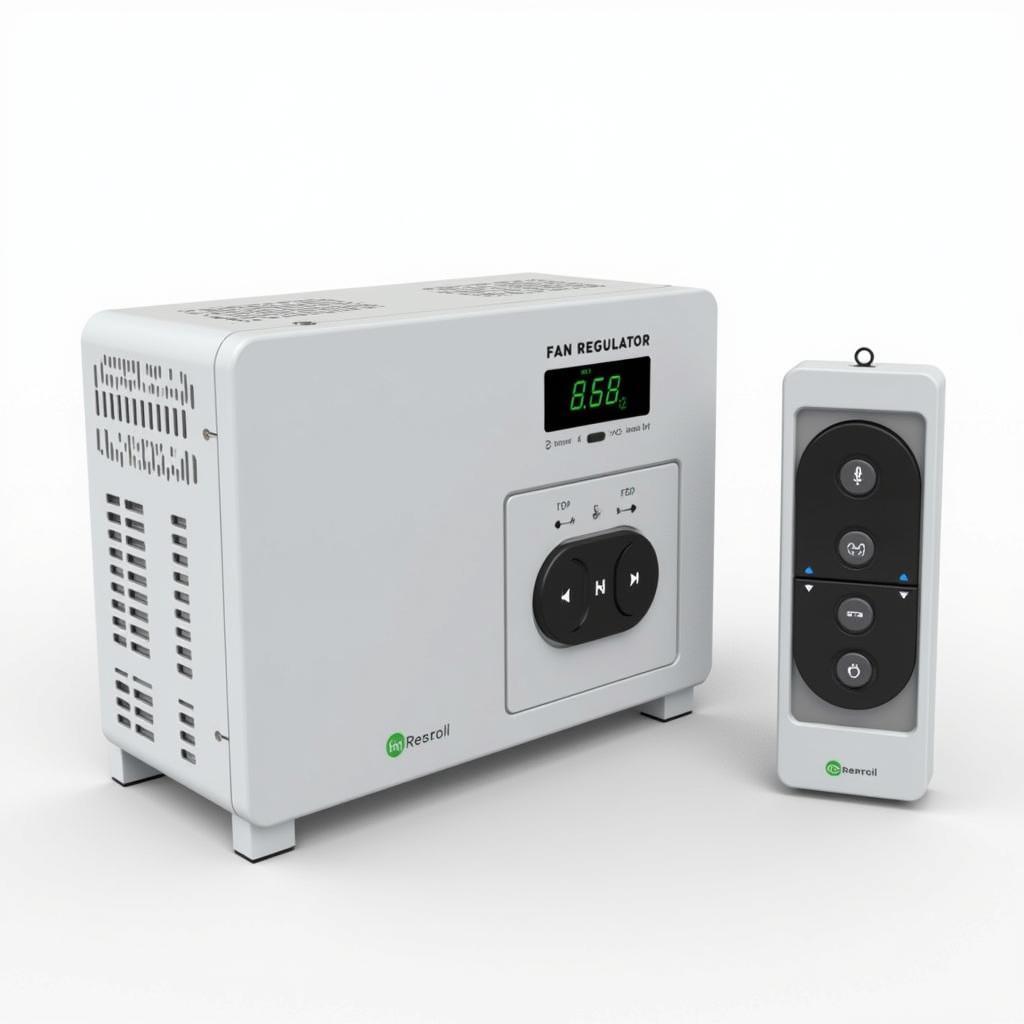A Fan Regulator is an essential device for controlling the speed of electric fans, offering comfort and energy efficiency. From understanding their working principles to choosing the right one for your needs, this comprehensive guide will cover everything you need to know about fan regulators. Let’s dive into the world of fan regulators and explore how they work, the different types available, and how to choose the perfect one for your home or office.
How Does a Fan Regulator Work?
Traditional fan regulators, also known as resistive regulators, control fan speed by changing the resistance in the circuit. Increased resistance reduces the voltage supplied to the fan motor, thus decreasing its speed. Conversely, reducing the resistance increases the voltage and fan speed. These regulators are simple and cost-effective, but they generate heat and waste energy.
Modern electronic fan regulators, however, utilize semiconductor devices like triacs or thyristors to control the voltage supplied to the fan motor. They work by chopping the AC waveform, effectively reducing the average power delivered to the fan without generating significant heat. This makes them much more energy-efficient than their resistive counterparts. More advanced models even incorporate features like remote control operation and timer functionality.
Types of Fan Regulators
Several types of fan regulators are available on the market, each with its own set of advantages and disadvantages. Understanding these differences can help you make an informed decision when choosing a fan regulator.
Resistive Regulators
These are the most basic and widely available type. While cost-effective, they are less energy-efficient and generate heat.
Electronic Regulators
These regulators are more energy-efficient and offer smoother speed control compared to resistive regulators. You can find more information on specific models, such as the 200va fan speed regulator, on dedicated pages.
Remote Control Regulators
These offer convenience by allowing you to control the fan speed from a distance.
Step Regulators
These provide a fixed number of speed settings, usually between 3 and 5.
 Different Types of Fan Regulators
Different Types of Fan Regulators
Choosing the Right Fan Regulator
Choosing the correct fan regulator is crucial for optimal performance and energy efficiency. Consider the following factors when selecting a fan regulator:
- Fan Compatibility: Ensure the regulator is compatible with the wattage and type of your fan.
- Energy Efficiency: Opt for electronic regulators for better energy savings.
- Features: Consider features like remote control, timer, and multiple speed settings based on your needs.
- Budget: Regulators are available at various price points. Explore options like fan regulator price for more details.
- Aesthetics: Choose a regulator that complements your room’s décor.
If you’re interested in the inner workings of a fan regulator, resources like fan regulator working principle pdf can provide in-depth technical information.
Why Use a Fan Speed Regulator?
Fan speed regulators provide several benefits:
- Comfort: Adjust the fan speed to your desired comfort level.
- Energy Savings: Reduce energy consumption by running the fan at lower speeds.
- Extended Fan Life: Running the fan at lower speeds can prolong its lifespan.
- Noise Reduction: Lower speeds generally result in quieter operation.
 Modern Fan Regulator with Remote
Modern Fan Regulator with Remote
Conclusion
Fan regulators are an essential part of any home or office setting, providing comfort and energy efficiency. By understanding the different types of regulators and their features, you can choose the perfect one to suit your specific needs. Investing in a good quality fan regulator can not only enhance your comfort but also help you save energy and money in the long run. Consider exploring further options like fan speed regulator for a wider selection. Understanding the technical details, as documented in resources like fan ac regulator use pic12f629, can also be beneficial for specific applications.
FAQ
- What is the purpose of a fan regulator?
- How does a resistive regulator work?
- What are the benefits of using an electronic fan regulator?
- How do I choose the right fan regulator for my fan?
- What is the difference between a step regulator and a continuous regulator?
- Are fan regulators energy efficient?
- Can I install a fan regulator myself?
For further assistance, please contact us at Phone Number: 0903426737, Email: [email protected] or visit our address: Lot 9, Area 6, Gieng Day Ward, Ha Long City, Gieng Day, Ha Long, Quang Ninh, Vietnam. We have a 24/7 customer support team.


